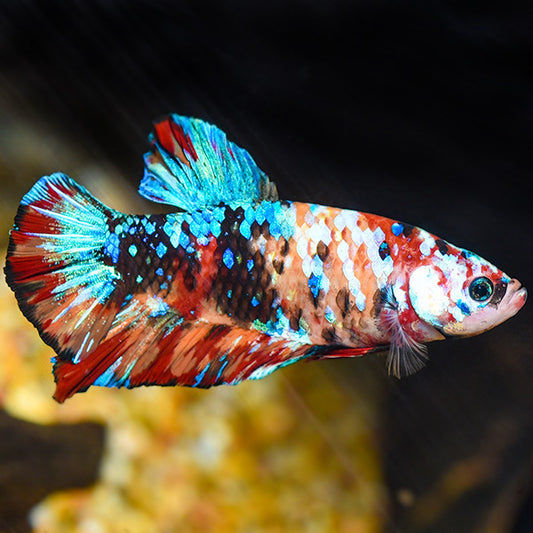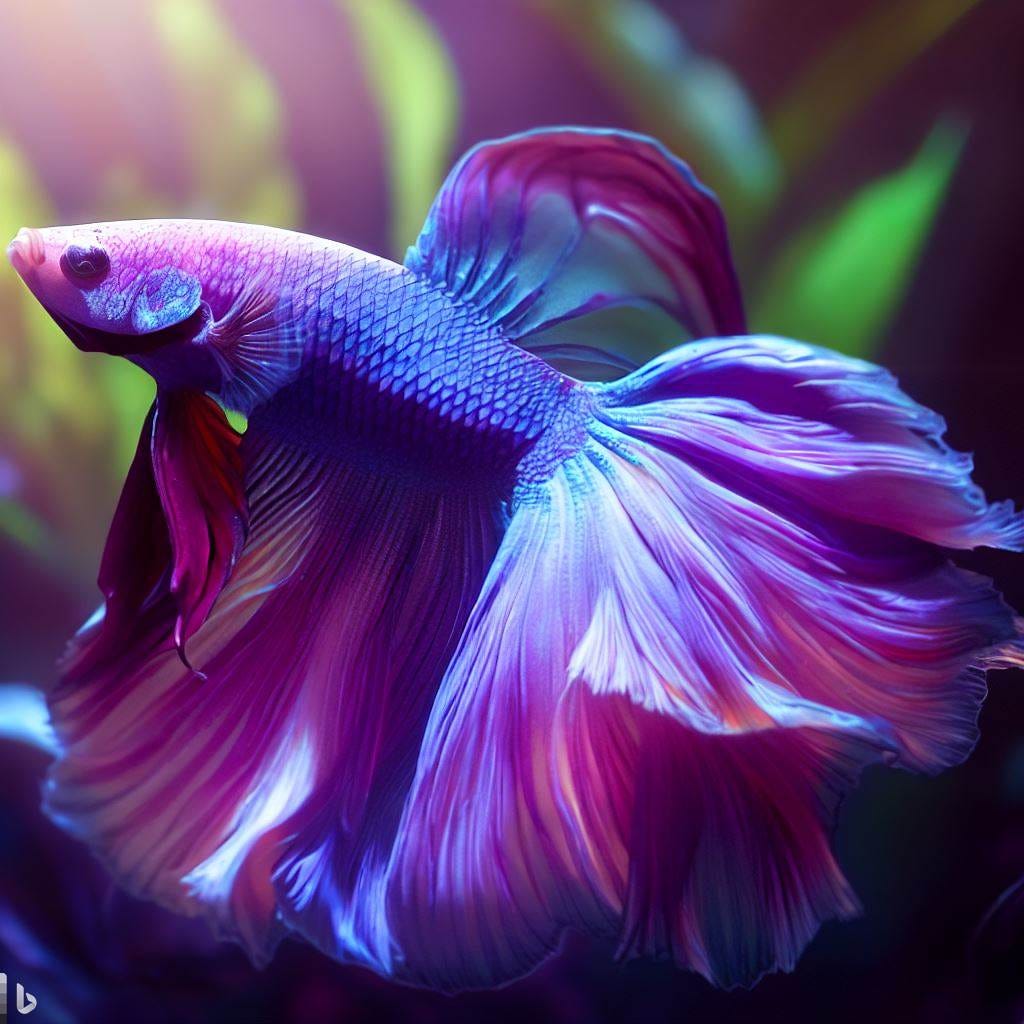Usual Betta Fish Conditions and Just How to stop Them
Usual Betta Fish Conditions and Just How to stop Them
Blog Article
All About Betta Fish: Understanding Their Distinct Requirements, Behavior, and the Ideal Practices for Optimum Care
Understanding the unique demands and habits of Betta fish is vital for any kind of aquarist aiming to supply optimal care. These fascinating creatures, belonging to the warm waters of Southeast Asia, exhibit unique territorial propensities and call for certain ecological conditions to flourish. From picking the right tank size to acknowledging possible health issues, different variables considerably influence their wellness. As we check out these components further, the implications for both beginner and seasoned fish caretakers come to be increasingly evident, questioning regarding how ideal to suit these remarkable fish in our homes.
Betta Fish Introduction
Although commonly appreciated for their lively shades and streaming fins, Betta fish, clinically referred to as Betta splendens, are complex creatures that call for details like prosper. Stemming from Southeast Asia, these freshwater fish are known for their territorial nature and unique behaviors. Betta fish show sex-related dimorphism, with men displaying more vivid colors and longer fins than females.
Their aggressive tendencies, specifically amongst men, require careful consideration when housing them. Bettas are often maintained in single-specimen containers to stop territorial disputes. They can exist side-by-side quietly with certain suitable species in bigger neighborhood tanks, gave the atmosphere fulfills their requirements.

To make sure optimum treatment, aquarists have to recognize their unique behavior attributes, nutritional demands, and environment needs. betta fish. With correct focus, Betta fish can show their vibrant personalities and flourish in a well-maintained aquarium setup
All-natural Environment and Atmosphere
Betta fish prosper in a diverse variety of all-natural environments, mainly found in the superficial waters of Southeast Asia, consisting of rice paddies, swamps, and slow-moving streams. These atmospheres are characterized by cozy temperatures, generally between 75 ° F and 82 ° F(24 ° C and 28 ° C ), and a pH degree ranging from 6.5 to 7.5, which is perfect for their wellness and wellness.
In their natural environments, Betta fish are accustomed to thick vegetation, giving both sanctuary and breeding grounds. The visibility of plants such as floating water lilies and thick grasses not just provides protection from killers yet additionally adds to the oxygenation of the water, which is important for their respiratory requirements. Furthermore, these atmospheres often have locations of still water, allowing Betta fish to show their all-natural behaviors such as bubble nesting.
Recognizing the all-natural habitat of Betta fish is essential for aquarium enthusiasts. Reproducing these problems-- with water temperature, pH equilibrium, and the addition of live plants-- can significantly boost the total health and long life of these fascinating fish, guaranteeing they flourish in a home fish tank setting.
Social Habits and Communications
Comprehending the social habits and interactions of Betta fish is necessary for effective fish tank monitoring. Betta fish, or Siamese combating fish, are recognized see this website for their one-of-a-kind behavior attributes, identified primarily by territoriality and aggression.
Conversely, women Bettas show much less hostile actions and can exist side-by-side visit here in teams, called sororities, if presented appropriately. It is critical to check their communications very closely, as power structure and supremacy can lead to problems. Recognizing the characteristics within a Betta neighborhood is important; establishing concealing areas and making sure sufficient space can minimize aggressiveness.
In enhancement, Betta fish may also display inquisitiveness and social actions towards other varieties. While they can exist together with certain non-aggressive container companions, it is important to choose suitable types to avoid stress and anxiety and hostility. In general, identifying these social interactions is key to cultivating an unified aquarium atmosphere for Betta fish.
Vital Care Standards
Offering proper treatment for Betta fish is essential to their wellness and wellness. To guarantee a growing atmosphere, it is necessary to maintain optimum water conditions. The water temperature must be kept in between 76 ° F and 82 ° F(24 ° C to 28 ° C), while pH levels need to range from 6.5 to 7.5. Normal water changes-- approximately 25% once a week-- assistance keep water quality.
Betta fish call for an appropriate container size; a minimum of 5 gallons is recommended to provide sufficient space for swimming and hiding. Consist of designs and plants to create a revitalizing environment, but stay clear of sharp items that could hurt their fragile fins.

Finally, guarantee the tank is equipped with a filter to maintain the water tidy, but use a mild filter to avoid solid currents that can worry the fish. By following these important care standards, owners can advertise a healthy and balanced and dynamic Betta fish.
Common Health Issues and Solutions
In the treatment of Betta fish, understanding of common health concerns is essential for keeping their wellness. One prevalent concern is fin rot, typically brought on by poor read this post here water top quality or bacterial infection. Signs include torn or stained fins. To deal with fin rot, enhance water problems and think about using a broad-spectrum antibiotic.
An additional common disorder is ich, a parasitic infection defined by white places on the fish's body (betta fish). Treatment entails boosting water temperature and adding fish tank salt to the tank, as this can assist remove the parasite
Swim bladder condition is additionally frequently observed, causing buoyancy troubles. This condition might emerge from overfeeding or constipation. A fasting duration of 24-48 hours, followed by a diet of blanched peas, can supply alleviation.
Last but not least, bettas may experience from velour condition, indicated by a gold dust-like appearance on their skin. Treatment normally calls for medication particularly created for exterior bloodsuckers, alongside improved tank hygiene.
Routine tracking of water criteria, keeping a tidy setting, and providing a balanced diet are important precautionary procedures. By addressing these health issues promptly, Betta fish can lead healthier, more vibrant lives.
Conclusion
In recap, effective betta fish care requires an understanding of their one-of-a-kind demands and habits. Regular surveillance of health and wellness and water high quality, along with a balanced diet regimen, contributes to the long life and vibrancy of betta fish.
Report this page